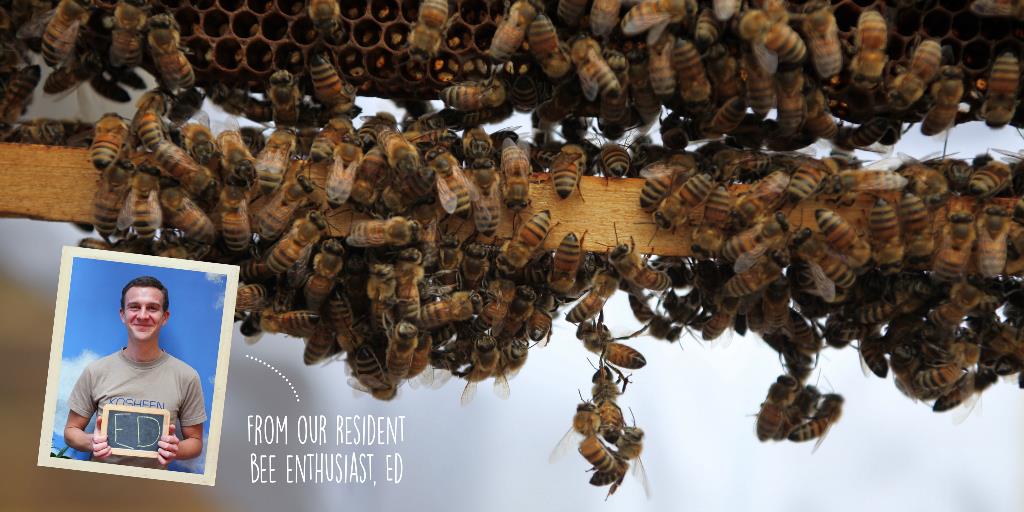Here at Abel & Cole we're really into biodiversity. The more the merrier when it comes to species, and research has shown time and again that the more parts to an ecological system the more productive it is as a whole. When organic farmers try to fit their crops into these webs they aim to keep those 'ecological services' intact, and research continues to highlight the importance of the number of wild plants and animals living in and around farms, including (and especially) insects.
Taking care of our pollinators

Pollinator power
Some fruit trees and veg plants can pollinate themselves but it's a process which is slow or ineffective. Pollinators however do the job perfectly in the short time when the conditions are right. But when you have fields and fields that need to produce seed or fruit, researchers have found there really is only so much one species can do, given the variation of habitats around the farms and the distances we're talking about.
It takes a village (or a hive)
We're all very familiar with the honeybee, but did you know over 270 species of bee have been recorded in the UK, and it takes around 80 of those at a time to keep a farm well-pollinated? And it's not just bees doing the job - there's a multitude of moths and wasps that all bring their own benefits to our food chain, and deserve equal care and encouragement. Most domesticated bee colonies have the luxury of an expert carer, but for wild populations affected by the same pressures - pesticides, pollution, habitat loss, climate change... there's no one to bring them back from 'colony collapse'. Then there's the solitary bees that don't even have the benefit of numbers..
Help a hive thrive
Just like our farmers we can all do a lot to make pollinators feel at home in our allotments and veg patches, and you don't need to live in the countryside to see it work. With Summer in full swing we're seeing more of our fuzzy friends around and we think they could do with a helping hand. From nectary banquets to bug hotels, we’ve come up with a few ideas to provide food and shelter for the masses.
Here are a few of our favourite tips you could do this weekend,
to help wildlife (and you) make the most of your space:
Log piles
A surprisingly aesthetic addition to a damp or dry corner, and you'd be surprised how much natural pest control will quickly take up residence. It doesn't need to be a fortress, just a few thick logs piled up somewhere you won't mind them breaking down a bit.
Bug hotels
These can be as simple as a bunch of sticks tied together or as ornate as a honeycomb of natural materials, as long as it's somewhere dry the beneficial bugs will find it and love you for it.
Grass islands
Leaving islands of un-mown grass again can be a great look for a garden, and will let some of the plants in there flower naturally. They don't need to be big patches, and you could put stakes and string out to mark the new borders.
Flower power
The easiest and most obvious way to feed pollinators is with...pollen, but make sure any plants you buy haven't been treated with pesticides, or safer still grow from organic seed.
Feeling inspired? Check out our range of sustainably-sourced garden suppliers, from pollinator-friendly seeds to eco-friendly compost.


